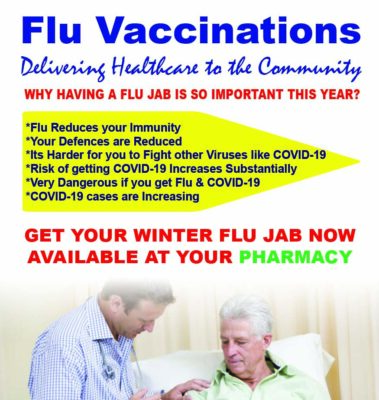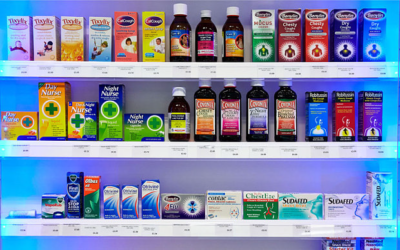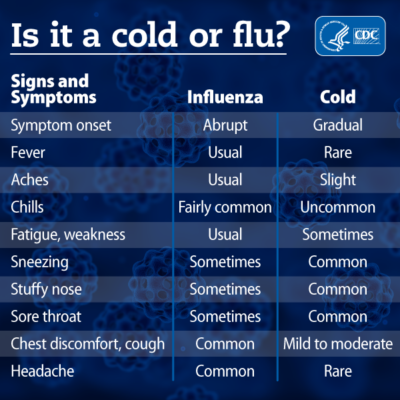Vaccine Benefits

What are the benefits of flu vaccination?
There are many reasons to get an influenza (flu) vaccine each year.
Below is a summary of the benefits of flu vaccination and selected scientific studies that support these benefits.
- Flu vaccination can keep you from getting sick with flu.
- Flu vaccine prevents millions of illnesses and flu-related doctor’s visits each year. For example, during 2018-2019, flu vaccination prevented an estimated 4.4 million influenza illnesses, 2.3 million influenza-associated medical visits, 58,000 influenza-associated hospitalizations, and 3,500 influenza-associated deaths.
- During seasons when the flu vaccine viruses are similar to circulating flu viruses, flu vaccine has been shown to reduce the risk of having to go to the doctor with flu by 40 percent to 60 percent.
- Flu vaccination can reduce the risk of flu-associated hospitalization for children, working age adults, and older adults.
- Flu vaccine prevents tens of thousands of hospitalizations each year. For example, during 2018-2019 flu vaccination prevented an estimated 58,000 flu-related hospitalizations.
- A 2014 studyexternal icon showed that flu vaccine reduced children’s risk of flu-related pediatric intensive care unit (PICU) admission by 74% during flu seasons from 2010-2012.
- In recent years, flu vaccines have reduced the risk of flu-associated hospitalizations among older adultsexternal icon on average by about 40%.
- A 2018 study showed that from 2012 to 2015, flu vaccination among adults reduced the risk of being admitted to an intensive care unit (ICU) with flu by 82 percent.
- Flu vaccination is an important preventive tool for people with chronic health conditions.
- Flu vaccination has been associated with lower rates of some cardiac eventsexternal icon among people with heart disease, especially among those who had had a cardiac event in the past year.
- Flu vaccination can reduce worsening and hospitalization for flu-related chronic lung disease, such as in persons with chronic obstructive pulmonary disease (COPDexternal icon).
- Flu vaccination also has been shown in separate studies to be associated with reduced hospitalizations among people with diabetesexternal icon and chronic lung diseaseexternal icon.
- Flu vaccination helps protect women during and after pregnancy.
- Vaccination reduces the risk of flu-associated acute respiratory infection in pregnant women by about one-half.
- A 2018 studyexternal icon that included influenza seasons from 2010-2016 showed that getting a flu shot reduced a pregnant woman’s risk of being hospitalized with flu by an average of 40 percent.
- A number of studies have shown that in addition to helping to protect pregnant women, a flu vaccine given during pregnancy helps protect the baby from flu for several months after birth, when he or she is not old enough to be vaccinated.
- Flu vaccine can be lifesaving in children.
- A 2017 study was the first of its kind to show that flu vaccination can significantly reduce a child’s risk of dying from flu.
- Flu vaccination has been shown in several studies to reduce severity of illness in people who get vaccinated but still get sick.
- A 2017 study showed that flu vaccination reduced deaths, intensive care unit (ICU) admissions, ICU length of stay, and overall duration of hospitalization among hospitalized flu patients.
- A 2018 studyexternal icon showed that among adults hospitalized with flu, vaccinated patients were 59 percent less likely to be admitted to the ICU than those who had not been vaccinated. Among adults in the ICU with flu, vaccinated patients on average spent 4 fewer days in the hospital than those who were not vaccinated.
- Getting vaccinated yourself may also protect people around you, including those who are more vulnerable to serious flu illness, like babies and young children, older people, and people with certain chronic health conditions.Despite the many benefits offered by flu vaccination, only about half of Americans get an annual flu vaccine and flu continues to cause millions of illnesses, hundreds of thousands of hospitalizations and tens of thousands of deaths. Many more people could be protected from flu if more people got vaccinated.






